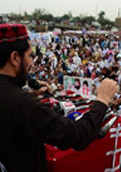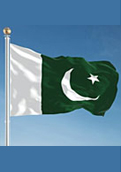IMF, Pakistan And The Chinese Debt-Trap!
Research Consultant, under the Pakistan News Digest Project, IDSA, Ms Zainab Akhter’s commentary on Pakistan’s economic crisis, titled ‘IMF, Pakistan and The Chinese Debt-Trap!’ was published by AIR World Service, an External Services Division of All India Radio, on October 19, 2018.
Ms Akhter argues that even if Pakistan gets the $12 billion IMF bailout, the amount will not be sufficient to bridge the financial gap. Though the bailout might provide comfort to the economic stakeholders, helping it dodge the immediate danger of a ‘sovereign default’, Pakistan will have to continue looking for more loans, and the cycle of debt trap will continue to haunt the country.









